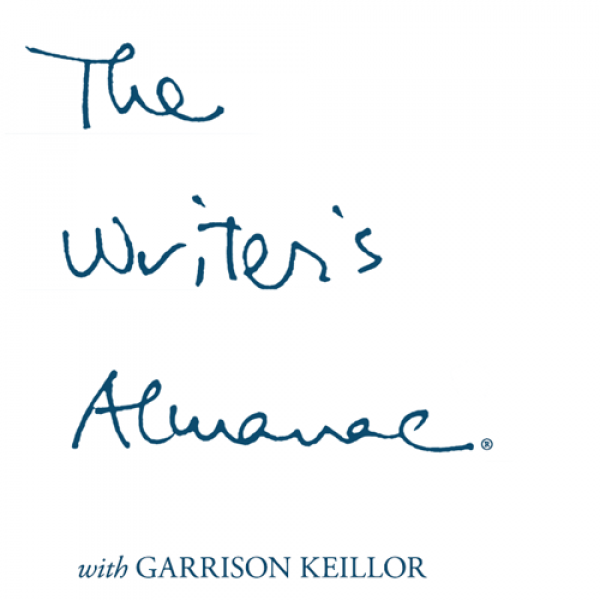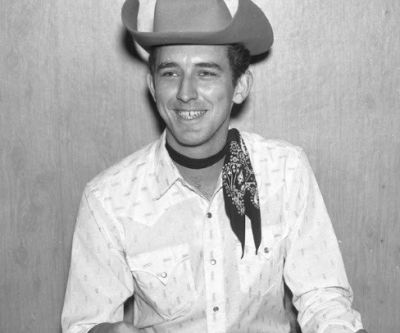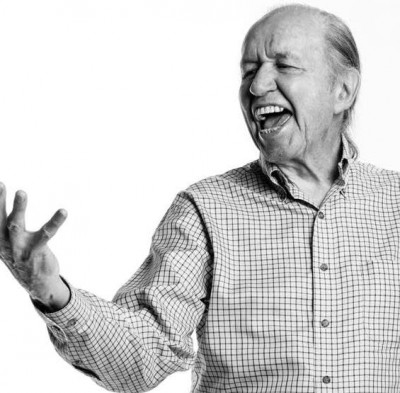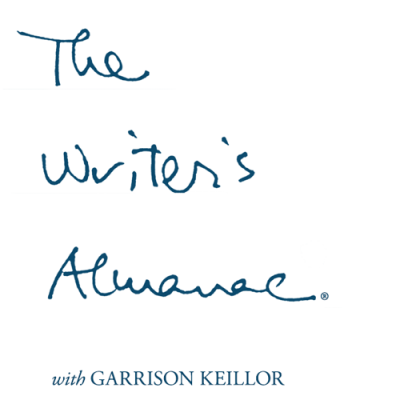December 20, 2018
Tuesday
8:00 p.m.
Minneapolis, MN
Test schedule
A live performance with Robin and Linda Williams at the Cedar Cultural Center
May 20, 2018
Sunday
3:00 p.m.
Lexington, MA
Lexington, MA
A live performance at the Saenger Theatre
April 10, 2018
Tuesday
8:00 p.m.
Tulsa, OK
Tulsa, OK
A live performance at the Brady Theater
March 17, 2018
Saturday
8:00 p.m.
Long Beach, CA
Long Beach, CA
A live performance at the Carpenter Performing Arts Center
March 15, 2018
Thursday
7:00 p.m.
Mobile, AL
Mobile, AL
A live performance at the Saenger Theatre
“Little Things” Julia A.F. Carney. Public domain.
Little drops of water,
Little grains of sand,
Make the mighty ocean
And the pleasant land.
Little deeds of kindness,
Little words of love,
Make our earth an Eden,
Like the heaven above.
On this day in 1949, George Orwell’s (books by this author) novel Nineteen Eighty-Four was published.
Nineteen Eighty-Four begins with the famous line: “It was a bright cold day in April, and the clocks were striking thirteen.”
In 1936, Orwell sold off the family silver and left to fight against the fascists in Spain. He was very tall; one morning his head was up above the parapet, and a sniper’s bullet hit his throat. He barely survived and was discharged, so he went back to England with his wife, Eileen. He got so sick that doctors were afraid he had tuberculosis, and he had to spend six months in a sanatorium. He wrote Homage to Catalonia (1938) about his experiences in Spain, but because he was critical of the Communists and also anti-Fascist, pretty much everyone who read it took offense at it. And not many people even read it — it was published in April of 1938, and by the time that WWII broke out in September, only 900 copies had been sold.
Orwell tried to join the war effort, but he was found unfit for any sort of military service. He kept busy writing reviews and political essays, and eventually he found a publisher for Animal Farm (1945), but not until it had been rejected by several publishers, including T.S. Eliot at Faber and Faber.
In 1945, Orwell was hired as a war correspondent for The Observer, and he was in France when he got news that his wife had died from a routine operation that he barely knew was happening.
Orwell was heartbroken and wasn’t feeling well, but he returned to England to take care of their adopted son, Richard. Animal Farm was successful, which also meant more work for Orwell, more lectures and invitations. David Astor, the editor of The Observer and a good friend of Orwell’s, asked if his friend would be interested in staying on his family’s estate on an island in the Hebrides, off the coast of Scotland. There was no electricity or telephone, the mail came twice a week, and they were 25 miles from the nearest store. The weather was harsh much of the time, and besides walks and fishing with his son, mostly he wrote and wrote, a new novel called The Last Man in Europe.
He said, “Writing a book is a horrible, exhausting struggle, like a long bout of some painful illness.” He kept working on the book, even after in 1947 he was confined to his bed and diagnosed with tuberculosis. He wrote from bed, and by longhand when his typewriter was taken away from him in the hospital. He went through an intense drug treatment in the hopes of curing his TB, which caused him mouth blisters, throat ulcers that made it hard to swallow, rashes, and flaking skin, and his hair and nails fell out. He was losing weight, had fevers, and his right arm had to be put in a cast, but he kept writing with his left. Under pressure from his publisher, he finally finished the book by the end of the year, and had to retype the messy manuscript himself.
He decided to change the title — from The Last Man in Europe to Nineteen Eighty-Four. It was published in June of 1949. It was a huge success — the critics loved it, and it sold well. But his health got even worse, and by September he was back in the hospital. In January of 1950, just seven months after Nineteen Eighty-Four was published, Orwell died at the age of 46.
It’s the birthday of poet Maxine Kumin, (books by this author) born in Philadelphia, Pennsylvania (1925). Her family was Jewish, but she went to Catholic school. She said, “In kindergarten at the Covenant Sisters of Joseph, conveniently next door to the house I grew up in, I was told stories of martyrdom and saints. This reinforced what I already knew from observing my father’s dedication to work: one must be prepared to endure every hardship to be saved. In suffering, seek salvation, was the message.”
She went to Radcliffe, where she took a writing class from Wallace Stegner. She turned in a set of sonnets, and Stegner wrote across the top: “Say it with flowers but for God’s sake don’t write poems about it.” Kumin was crushed. She said, “That just simply turned me off of poetry. I didn’t write another poem for years and years and years. I was 17. I had led a comparatively sheltered life, at least intellectually, and I was not at all prepared for this. I had no comprehension of the fact that I was writing flowery, romantic sonnets. I thought the fact that they were metered and rhymed was pretty good. The one thing I learned from that was never, ever do that to a young student, because you simply cannot predict what somebody who is 17 or 18 years old is going to be like in five years. And then of course I forgive him because I think he was only four or five years older than I was.”
So she stopped writing poetry for a while. She got married, and had children. When she started writing again, it was at the Boston Center for Adult Education, and there she met another suburban housewife who was also a talented poet: Anne Sexton. The two became inseparable. They installed extra phone lines in their houses so that they would never have to hang up on each other, and when either of them wanted to talk about poetry, she would whistle into the phone and the other would hear it and come to listen.
Kumin said, “In the early years, ‘you write like a man’ was the supreme compliment.” In her collection Up Country (1972), which won the Pulitzer Prize, she wrote from the point of view of a male hermit because she didn’t think readers would respond to the idea of a female hermit. When she was chosen as the Poet Laureate in 1980, she promptly criticized one of her fellow members of the Council of Scholars—the violinist Yehudi Menuhin—who wrote a paper about how men and women approach life and art differently. Menuhin said, “The man is driven to strike out, to build roads—roads anywhere and nowhere in particular—sometimes leading to heaven, more often back to self—and general destruction. The woman is, on the other hand, compelled to plough and till over and over again the same plot of earth, from time to time attracting a male to ensure its fertility and, if she has captivated him, defending it together, or alone, against other male depredations.” Maxine Kumin did not take kindly to this characterization, nor to the fact that of the 23 members of the Council of Scholars, only two were women. She said, “”I felt as though I had stumbled into a stag club and ought to leap out of a cake. Creativity is not the exclusive province of this very narrow slice of society.”
In 1963, Kumin and her husband bought a large farm in New Hampshire. The barn was falling apart, the roof on the house needed replacing, the land had been let go, and the previous owner—an artist—left behind a collection of really bad paintings. But they loved it, and at less than $12,000, it was within their price range. Kumin named it PoBiz farm, in honor of the Poetry Business. It started out as a summer home, but they moved there for good in 1976, and Kumin has lived there ever since. She said, “I can’t even visualize being a poet without living here,” and she writes many of her poems about the farm, and about the business of doing chores, riding horses, and taking care of the land. She said, “My poetry is pretty much centered in New England, but more poetry of people and animals than of landscape. I suppose it could be called pastoral, but not a romanticized pastoral. It has real manure in it and real rain, and real anguish and loss just as much as it has some of the sunny hours.”
She had been athletic her entire life—a competitive swimmer as a girl, then an active gardener, farmer, and horse-back rider. As she got older, her arthritis made it difficult for her to ride horses for long distances, so she started driving horses instead. When she was 74 years old, she got in a terrible horse-driving accident and almost died. Instead, she was left with 11 broken ribs, a punctured lung, a broken neck, bruised internal organs, and months of slow healing and physical therapy. From that experience she wrote a memoir, Inside the Halo and Beyond: The Anatomy of a Recovery (2000), and a book of poems, The Long Marriage (2001).
She wrote: “Allegiance to the land is tenderness. / The luck of two good cuttings in this climate. / Now clear down to the alders in the swale, / the fields begin an autumn flush of growth, / the steady work of setting roots, and then / as in a long exhale, go dormant.”
The Great Seattle Fire destroyed downtown Seattle on this date in 1889. The fire started in the basement of a cabinet shop on the corner of Front and Madison. An employee had set a pot of glue on top of a lit stove, and the glue caught fire. Over the next 18 hours, the blaze wiped out the town’s business district and waterfront. Miraculously, there were no human fatalities.
In a year’s time, Seattle had nearly been rebuilt. All the construction jobs sparked a population boom, and Seattle grew from a town of 25,000 into a full-fledged city of more than 40,000.






